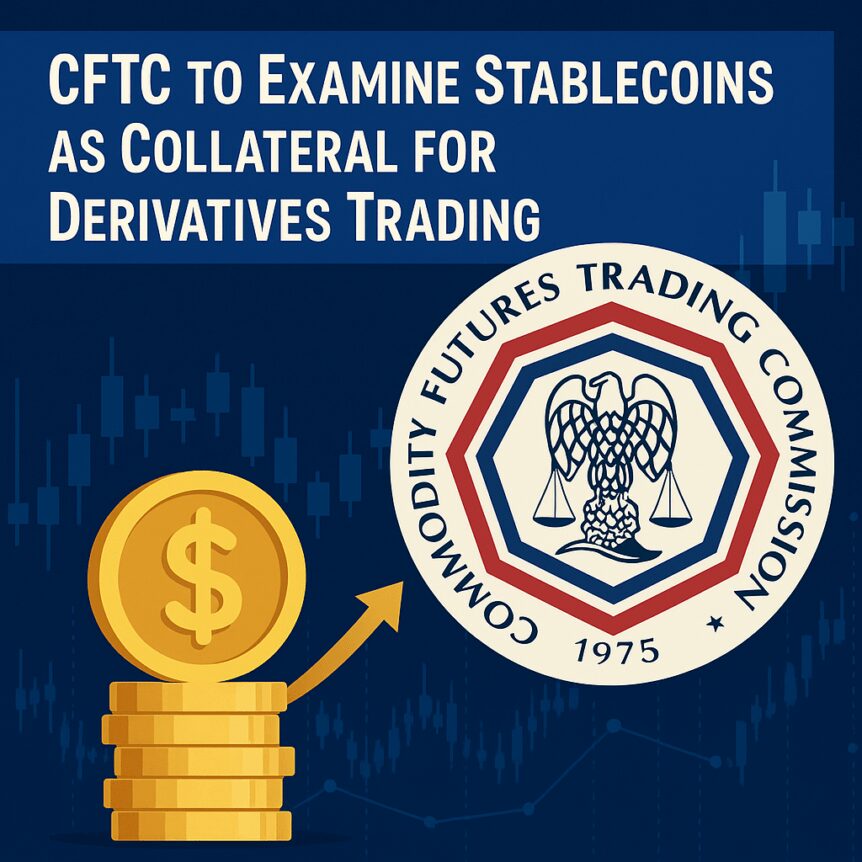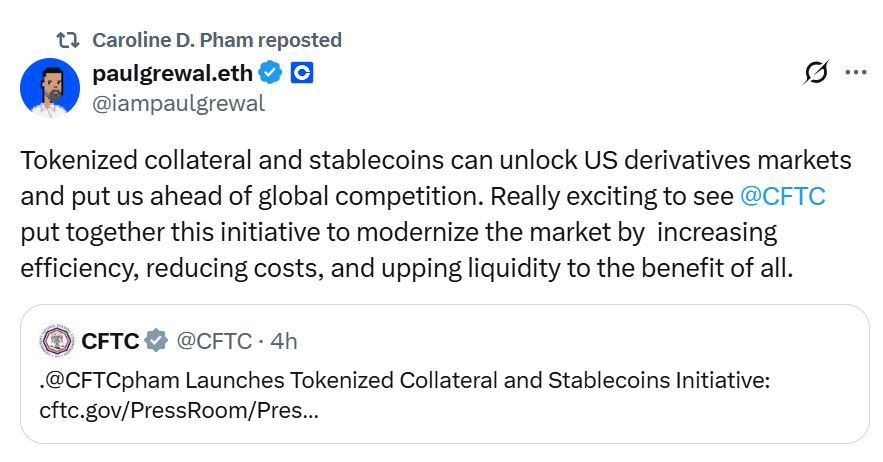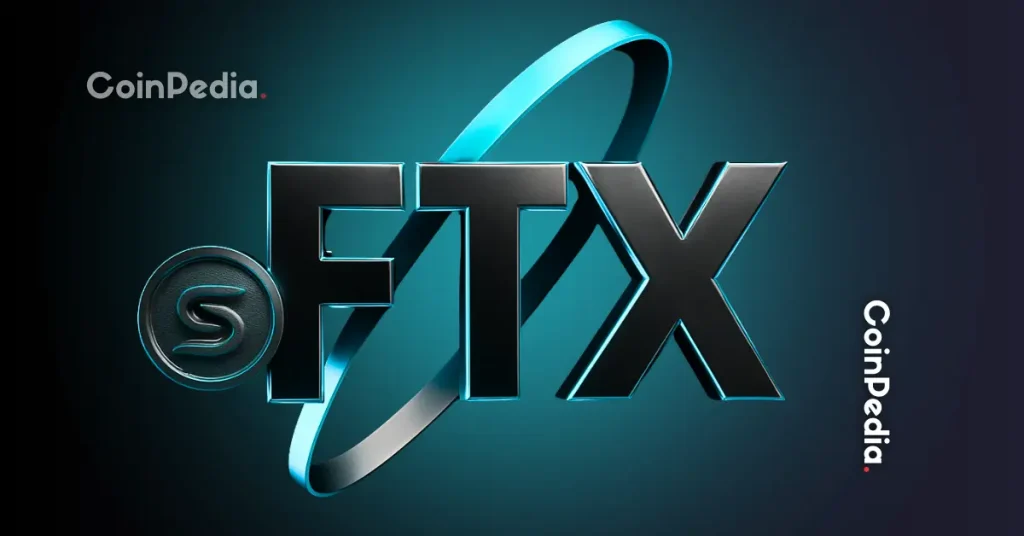CFTC to Examine Stablecoins as Collateral for Derivatives Trading

The U.S. Commodity Futures Trading Commission (CFTC) is exploring a significant shift in how collateral is used within derivatives markets, by permitting tokenized assets, including stablecoins, as acceptable collateral. This move aims to modernize and expand the role of digital assets in regulated financial markets, aligning with recent legislative developments and industry support, potentially transforming the landscape of crypto-backed derivatives trading.
- The CFTC is welcoming public feedback on using tokenized assets, such as stablecoins, as collateral in derivatives markets until October 20.
- If adopted, stablecoins like USDC and USDT would be treated on par with traditional collateral such as cash or U.S. Treasurys.
- Major crypto firms and stablecoin issuers are publicly supporting the proposed initiative, emphasizing benefits like reduced costs and enhanced liquidity.
- The move is part of broader efforts to integrate stablecoins into regulated markets, following recent legislation like the GENIUS Act.
- This initiative signals a broader evolution in U.S. crypto regulation, as agencies seek to establish clearer rules for digital assets in financial systems.
US Regulator Eyes Tokenized Assets for Derivatives Collateral
The U.S. Commodity Futures Trading Commission (CFTC) has announced it is actively considering permitting tokenized assets—such as stablecoins—to serve as collateral in derivatives markets. CFTC acting chair Caroline Pham emphasized that her agency would collaborate with industry stakeholders, inviting feedback until October 20 to shape the regulatory framework for tokenized collateral.
Under this proposed approach, stablecoins like USDC and Tether (USDT) could be treated similarly to traditional collateral such as cash or U.S. Treasurys, in a move that could significantly broaden their use in regulated derivatives trading. The legislation earlier this year provided a legal framework for stablecoins, encouraging their adoption among financial institutions amid growing mainstream interest.
Source: Caroline PhamCrypto Industry Leaders Endorse the Initiative
Prominent figures from major crypto firms and stablecoin issuers have expressed support for the CFTC’s plans. Circle Internet Group president Heath Tarbert noted that the GENIUS Act facilitates a blockchain-based payment ecosystem, where licensed American stablecoins can be used as collateral in traditional financial markets, including derivatives.
“Using trusted stablecoins like USDC as collateral will lower costs, reduce risk, and unlock liquidity across global markets 24/7/365,” Tarbert remarked. The legislation, signed into law by President Donald Trump in July, is poised to clarify stablecoin regulations, pending final regulatory rules.
Meanwhile, Coinbase’s chief legal officer Paul Grewal underscored the strategic importance of tokenized collateral, stating, “Tokenized collateral and stablecoins can unlock U.S. derivatives markets and position us ahead of global competitors.”
 Source: Paul Grewal
Source: Paul Grewal
Ripple’s senior vice president Jack McDonald also praised the effort, emphasizing that establishing clear rules and governance around stablecoins will foster greater trust, transparency, and resilience within the markets. “Establishing clear rules for valuation, custody, and settlement will give institutions the certainty they need,” he said.
Strategic Foundations and Future Directions
Acting Chair Pham highlighted that this tokenized asset initiative builds on earlier discussions from the CFTC’s Crypto CEO Forum and fits into broader efforts, including the recent crypto sprint to implement recommendations from the President’s Working Group on Digital Asset Markets.
The forum in February called for industry input on digital asset pilot programs and the use of tokenized non-cash collateral, with subsequent proposals emphasizing the potential of distributed ledger technology (DLT) to expand collateral options.
Changing Crypto Regulatory Landscape
Pham’s announcement coincides with broader regulatory shifts, as SEC Chair Paul Atkins revealed efforts to develop an innovation exemption—intended to temporarily shield crypto firms from older securities rules while new regulations are crafted. His agency is also advancing “Project Crypto,” aimed at modernizing securities rules and enabling onchain operations in U.S. markets.
This article was originally published as CFTC to Examine Stablecoins as Collateral for Derivatives Trading on Crypto Breaking News – your trusted source for crypto news, Bitcoin news, and blockchain updates.
You May Also Like

Tether Seeks $20B Funding at $500 Billion Valuation, Dwarfing Circle

FTX Bankruptcy Lawsuit Targets Genesis Digital Assets in $1 Billion Clawback
